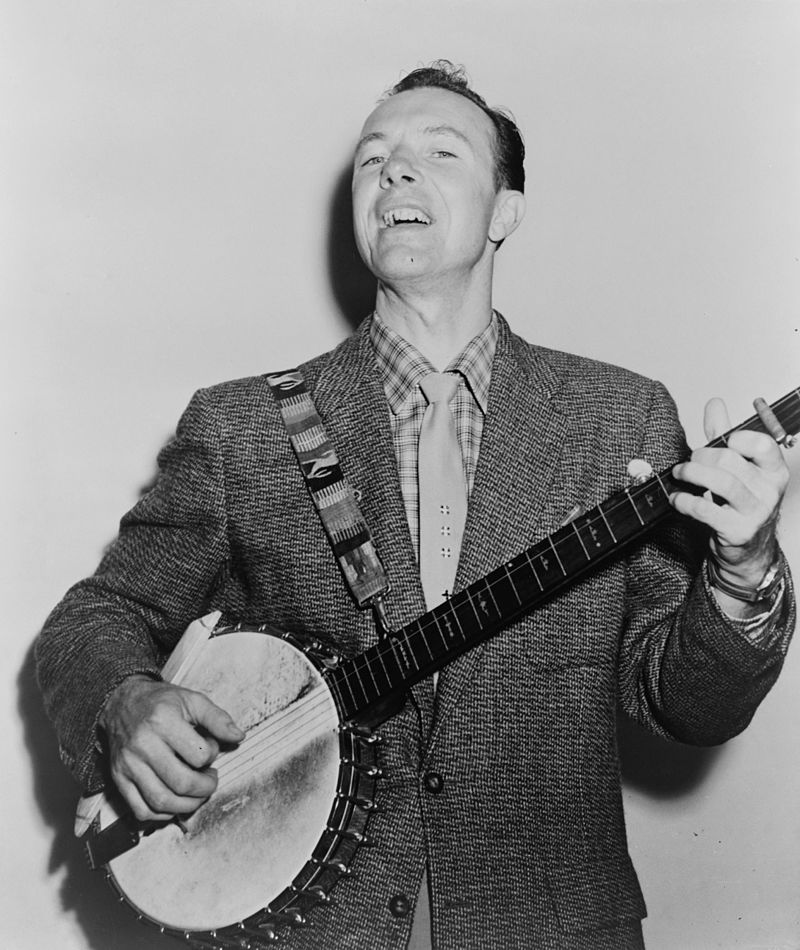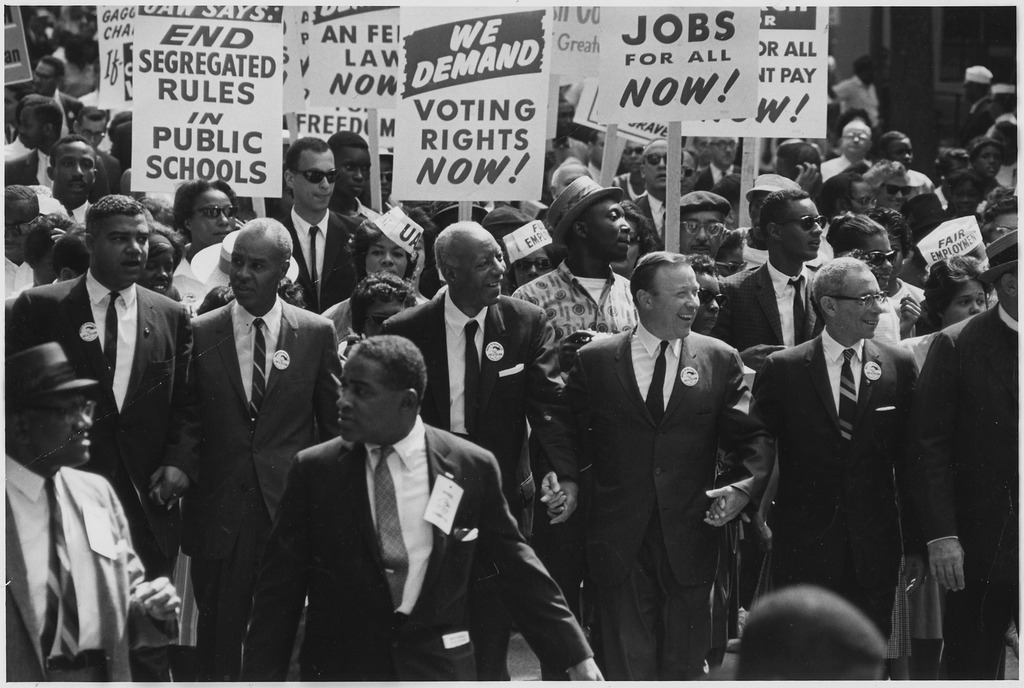
Protest Songs
The terms "resistance" and "protest" were equally applied to popular songs in the United States in the 1930s. The composer Charles Seeger wrote that folk music was acceptable if "it clearly showed a spirit of resentment towards oppression or vigorous resistance" (Cantwell 1996, 93). Meanwhile, the Communist journal New Masses titled a collection of Black North American music Negro Songs of Protest (Gellert 1936). The terms "protest" and "resistance" are often used interchangeably, but a distinction can be made between protest songs as explicit statements of opposition to the political, economic, or social status quo and music of resistance, which may be more coded or opaque in its expression of dissidence - what Lipsitz (1994) has called "immanent resistance."
The term "protest song," used here interchangeably with "resistance song," embodies many of the characteristics discussed so far as well as new ones presented in this section. "We Shall Overcome," "Over My Head I See Trouble in the Air" "George Wallace," and "Mississippi Goddam" address African American people's dissatisfaction and resentment of unfair treatment regarding job opportunities, housing, education, health, and other socioeconomic issues. The main difference between the previous section and this one is that the melody and lyrics in protest songs did not originate from early spirituals. Moreover, the protest songs here refer specially to fundamentally unjust events concerning voter registration, jobs, a person's inherent rights, or the like. Moreover, the protest songs presented here clearly are illustrative of African American individual activism.
For instance, the lyrics of the song "This Little Light of Mine," which was sung during meetings, rallies, and the like, lifts burdens, instills courage, strengthens confidence, and so on. There is still conjecture and debate as to the song's origin, but the individual voices of Fannie Lou Hamer and Bettie Mae Fikes are most associated with this song during the civil rights movement. On August 31,1962, in Ruleville, Mississippi, Ms. Hamer, and other community members were not allowed to register to vote. Afterwards they sang, "This Little Light of Mine."
In 1963 Ms. Fikes of Selma, Alabama, who at some point received the unofficial title of the voice of Selma during the civil rights movement, sang "This Little Light of Mine" after learning about a racist attack on a few of her friends. Watch this video of Ms. Fikes speaking about her personal experiences in Selma as well as about the movement.
Listen to this live recording of Ms. Fikes singing "This Little Light of Mine:"

This Little Light of Mine [ 00:00-00:00 ]
Martin Luther King, Jr.
I have a dream that my four little children will one day live in a nation where they will not be judged by the color of their skin but by the content of their character.
We Shall Not Be Moved
Oh I, shall not
I shall not be moved I shall not
I shall not be moved
Just like a tree planted by the water
I shall not be moved







